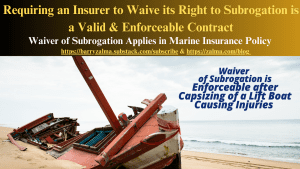Is homeowners insurance tax deductible?
Is homeowners insurance tax deductible?
Homeowners insurance is one of the main expenses you’ll pay as a homeowner. Homeowners insurance is typically not tax deductible, but there are other deductions you can claim as long as you keep track of your expenses and itemize your taxes each year. Jan 19, 2022
Why has my home insurance doubled?
When catastrophes like wildfires, wind or hail are on the rise in your area, it increases the risk to your property, and insurance carriers typically increase rates in tandem. Upticks in damaging weather conditions like hail, wind, tornadoes and hurricanes can also cause a rise in premiums.
How can you lower your insurance bill?
Listed below are other things you can do to lower your insurance costs. Shop around. …Before you buy a car, compare insurance costs. …Ask for higher deductibles. …Reduce coverage on older cars. …Buy your homeowners and auto coverage from the same insurer. …Maintain a good credit record. …Take advantage of low mileage discounts. More items…
How much is PMI on a $300 000 loan?
Let’s take a second and put those numbers in perspective. If you buy a $300,000 home, you would be paying anywhere between $1,500 – $3,000 per year in mortgage insurance.
Is PMI a waste of money?
It’s nearly impossible to make that kind of return in the stock market, retirement account, or another financial instrument. PMI, then, can be viewed as an investment — a very sound one — and not a waste of money. Mar 15, 2022
Is PMI based on credit score?
Credit scores and PMI rates are linkedInsurers use your credit score, and other factors, to set that percentage. A borrower on the lowest end of the qualifying credit score range pays the most. “Typically, the mortgage insurance premium rate increases as a credit score decreases,” Guarino says. Aug 11, 2020
Is PMI the same as mortgage insurance?
Private mortgage insurance, also called PMI, is a type of mortgage insurance you might be required to pay for if you have a conventional loan. Like other kinds of mortgage insurance, PMI protects the lender—not you—if you stop making payments on your loan. Sep 4, 2020
How can I avoid PMI?
One way to avoid paying PMI is to make a down payment that is equal to at least one-fifth of the purchase price of the home; in mortgage-speak, the mortgage’s loan-to-value (LTV) ratio is 80%. If your new home costs $180,000, for example, you would need to put down at least $36,000 to avoid paying PMI.
How do you value house contents?
To estimate the value of your home contents, you should: Go from room to room, making a list of all your possessions. Estimate how much each possession is worth. Get up-to-date valuations of jewellery and other high-value items. Add up the cost of all your items to get your estimate. Jan 12, 2022
Which is better replacement cost or actual cash value?
While actual cash value is cheaper, replacement cost provides better coverage since it includes the recoverable depreciation of your property.
How many principles of insurance are there?
7 principlesTo ensure the proper functioning of an insurance contract, the insurer and the insured have to uphold the 7 principles of Insurances mentioned below: Utmost Good Faith. Proximate Cause. Insurable Interest.
What does full replacement mean?
Full Replacement Cost means the actual replacement cost from time to time of the improvement being insured, including the increased cost of a construction endorsement, less exclusions provided in the fire insurance policy.
What type of property does a personal floaters policy cover?
Floater insurance is a type of insurance policy that covers personal property that is easily movable and provides additional coverage over what normal insurance policies do not. Also known as a “personal property floater,” it can cover anything from jewelry and furs to expensive stereo equipment.
What are the 3 basic levels of coverage that exist for homeowners insurance?
Homeowners insurance policies generally cover destruction and damage to a residence’s interior and exterior, the loss or theft of possessions, and personal liability for harm to others. Three basic levels of coverage exist: actual cash value, replacement cost, and extended replacement cost/value.
What factors affect homeowners insurance?
Here are 10 factors that affect how much homeowner insurance costs: Where you live. The price of your home and the cost to rebuild it. The amount of coverage. Your home’s age and condition. Home security and safety features. Your credit history. Additional types of coverage. Your deductible. More items… • Jul 31, 2020



